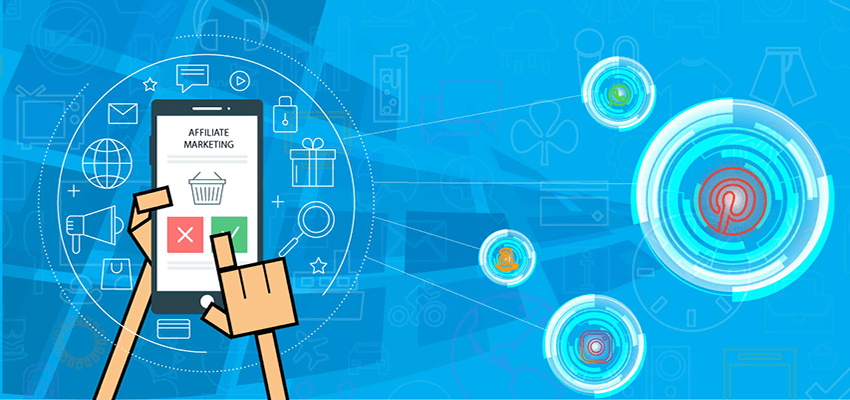Let’s say you happen to read about what a blogger says about a particular consumer product. You’re convinced enough to decide to buy this item online, so you click on the link that the blogger conveniently provides.
You’re then sent to the seller website of the item, and you pay for it. A few days later, you get your item delivered. That’s all there is for you.
However, from the seller’s and blogger’s POVs, it’s a bit more complicated. The blogger earns a commission every time they send a buyer to the seller’s website. So when you bought that item, part of your money went to the blogger.
This process is affiliate marketing when the bloggers and other affiliates do the job of convincing customers to buy what the sellers are offering. The process went mainstream way back in 1996 when Amazon.com used it as one of their marketing platforms.
But that’s the past. So what’s the future? The most honest answer is that no one knows. However, here’s a list of what the experts believe regarding what’s in store for affiliate marketing in the future:
It’s Not Going to Go Away
The Internet is full of various fads, but affiliate marketing seems like it’s going to stay, much like email. In 2015, affiliate marketing spending was already at $4.21 billion. It’s been increasing ever since, and by 2020 it’s projected to reach $6.82 billion. That’s a lot of money, and it goes to show that affiliate marketing is still growing.
The Rise of Influencers
Influencers are people who are very knowledgeable about their chosen subject matter. They’re also very impressive folks, as they’re able to present their ideas online by making them attractive. They’re good at convincing people to believe them. So when they say that a particular item is right, then a significant number of people believe them.
You’ve got plenty of influencers on various niches, and they keep on coming. Plenty of people like to talk about what interests them, and some of these people are great at making others interested too.
The Use of Social Media
At one point affiliate marketer had to put up a website or a blog to promote their items. Now they can use Facebook to chat up potential customers or use YouTube to make review videos.
It’s About Informing, Not Selling
The key to successful affiliate marketing in the future, according to some experts, is to focus more on informing people. It’s not about the selling at all. That’s just a happy side effect, but it’s not the main point. The main point is to get a discussion going regarding some idea within a particular niche and to encourage greater interest among people about a specific subject matter.
They can put up interesting lists like “The best chronographs under $1,000”, or “the best hiking boots.” All these can elicit comments with approval for some choices for the list, or objections about why others weren’t listed. It’s all engaging with others in the community.
Maybe the links for the items are just posted, for the convenience of video viewers who are interested in the listed products. That’s the key. If selling becomes the main point, people can dismiss the influencer as merely a profit-driven seller, and not a promoter of the subject matter itself.
More Companies Using Affiliate Marketing
This is a very logical prediction for affiliate marketing. If consumers are spending more on this type of platform, then it stands to reason that more brands will jump on the bandwagon.
It’s a win-win proposition for both affiliate marketer and seller. The affiliate marketer, if they’re a real and honest influencer, will mention the brands and products they like. This is regardless if they can make money off these brands or not.
At the same time, the sellers boost their online presence, and the experts confirm the worth of their items. So they may pay a commission, but they still earn a lot more with the deal.






 Share
Share 

